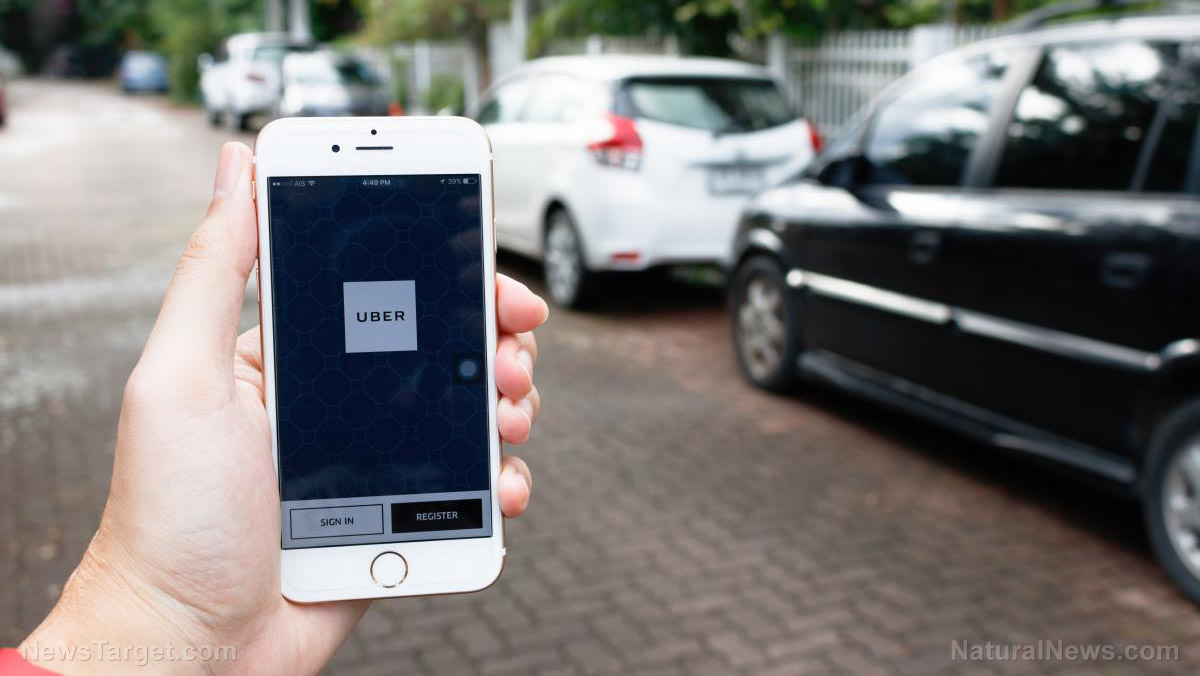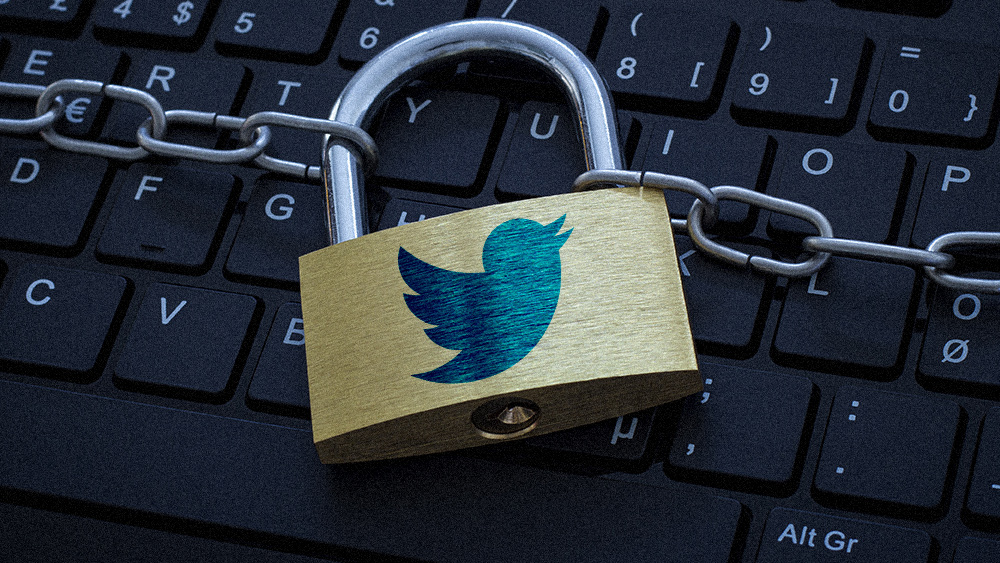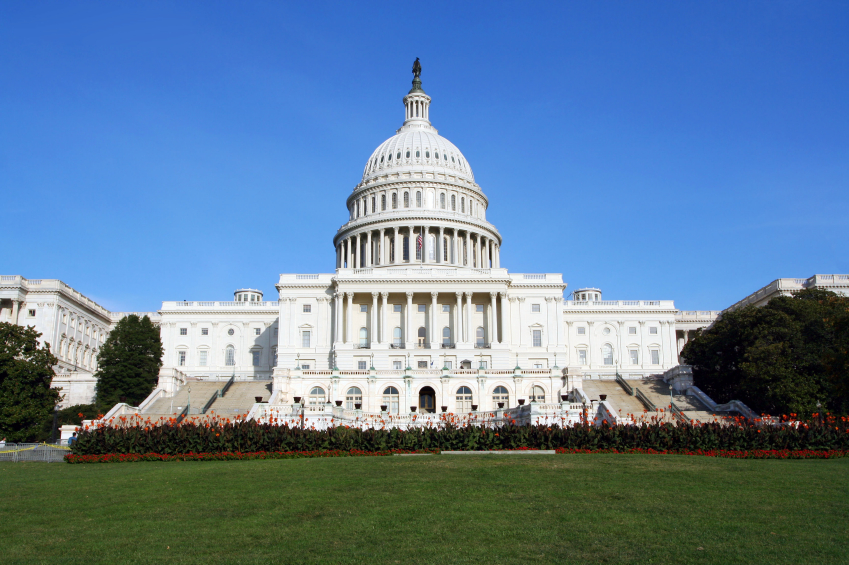Uber loses nearly $6 billion on investments due to stakes in Didi, Grab
05/08/2022 / By Mary Villareal

American mobility service provider Uber reported a loss of $5.9 billion in the first quarter of 2022 as investments in two Asian companies, Didi and Grab, plunged since they were listed in the U.S. in 2021.
The losses came from the value of China’s Didi, Singapore’s Grab and U.S. startup Aurora. These losses include $359 million in stock-based compensation costs.
Uber Chief Financial Officer Nelson Chai said: “During Q1, our equity stakes portfolio was meaningfully impacted by overall market and company-specific volatility, driving a $5.6 billion unrealized pre-tax loss related primarily to the mark-to-market of our publicly traded stakes in Grab, Aurora, and Didi.”
Chai noted that the company has enough cash to hold on to the stakes despite running at a loss. Meaning, they can wait for a better time to sell their stakes. He said the company’s GAAP net income may still continue to be dynamic from quarter to quarter due to the size of equity stakes on their balance sheets.
“While we intend to monetize some of our stakes at an appropriate time, we have sufficient liquidity to give us the flexibility to maintain all of these positions, with the aim of maximizing value for Uber and our shareholders,” he said.
Despite the losses, the company is far from failing: Uber’s performance in the first quarter saw bookings soaring 35 percent to $26.4 billion. Trips in the quarter also grew 18 percent with an average of about 19 million trips per day. Uber also reported 1.71 billion trips on the platform, with monthly active platform consumers reaching 115 million or 17 percent more year-over-year. Quarterly revenue grew 136 percent to $6.9 billion.
Uber CEO Dara Khosrowshahi said during the company’s earnings announcement that their results demonstrate how much progress the company made by navigating out of the pandemic, and how the power of their platform differentiates their business performance.
Didi’s share on the New York Stock exchange went down about 61.5 percent year-to-date due to Beijing’s crackdown on the country’s Big Tech companies, and it is now moving to delist its stocks in the United States.
Grab’s stock prices also went down 56 percent as shares are under pressure from a worse-than-expected revenue fall in the first quarter. Overall, the company is down 20 percent year-to-date in a broad market selloff due to different factors, including the pandemic, surging inflation and most recently, the Russia-Ukraine war. (Related: Democrats to ban Uber, Lyft in Austin, Texas, as local bureaucrats destroy the free market to protect monopolies.)
Uber drivers get back on the platform
The latest results from Uber come as the company said it would no longer need to spend more in an effort to get drivers back on the platform after its competitor, Lyft, warned that it would need to keep spending on driver incentives following a less favorable quarterly earnings report and stocks plummeting by 26 percent.
This is not the case for Uber as its driver base was able to recover to a pre-pandemic level, suggesting that it would no longer need to make additional investments to get drivers. (Related: Why Democrats are so afraid of the ‘gig’ economy based on decentralized, peer-to-peer transactions that bypass government control.)
For the second quarter of the year, Uber anticipates gross bookings to be between $28.5 billion and $29.5 billion. It also expects earnings before interest, taxes, depreciation and amortization to be around $240 to $270 million.
Uber said it expects to generate “meaningful positive cash flows” for the full year, which would mark a first for the company. Khosrowshahi said in a statement in April that mobility gross bookings exceeded their pre-pandemic levels across all regions and use cases.
“Our need to increase the number of drivers on the platform is nothing new nor is it a surprise. There’s a lot of work ahead of us, but this is a machine that is rolling,” Khosrowshahi said.
Part of Uber’s previous success is its reliance on its delivery business throughout the pandemic, including Uber Eats. However, mobility revenues have surpassed delivery revenues, which now reported $2.52 billion in revenue, as opposed to the $2.51 billion that deliveries bring in.
While finances seem to have been stabilizing in recent months, the war in Ukraine caused significant increases in fuel prices, making analysts cautious about pouring millions into keeping their drivers on the road.
Follow BigTech.news for more updates about Uber’s platform.
Watch the video below to know more about tech hypes and learn how companies like Uber can operate at a loss for years.
Watch this video and more on the Gold Newsletter channel on Brighteon.com.
More related stories:
Uber is your Big Brother: It tracks you everywhere, even when you’re not using the Uber app.
UberRUSH delivery service revolutionizing local U.S. economies.
‘I can’t believe we survived’: Uber driver viciously attacked by BLM mob.
Steeped in corruption and questionable practices, UBER has become the Monsanto of ride sharing.
Sources include:
Submit a correction >>
Tagged Under:
bad business, big companies, Big Tech, business, companies, corporations, Glitch, grab, investments, losses, Lyft, mobility, quarterly revenues, revenue, ride sharing, shares, stocks, tech giants, transportation, Uber
This article may contain statements that reflect the opinion of the author
RECENT NEWS & ARTICLES
COPYRIGHT © 2017 BigTech.news
All content posted on this site is protected under Free Speech. BigTech.news is not responsible for content written by contributing authors. The information on this site is provided for educational and entertainment purposes only. It is not intended as a substitute for professional advice of any kind. BigTech.news assumes no responsibility for the use or misuse of this material. All trademarks, registered trademarks and service marks mentioned on this site are the property of their respective owners.




















